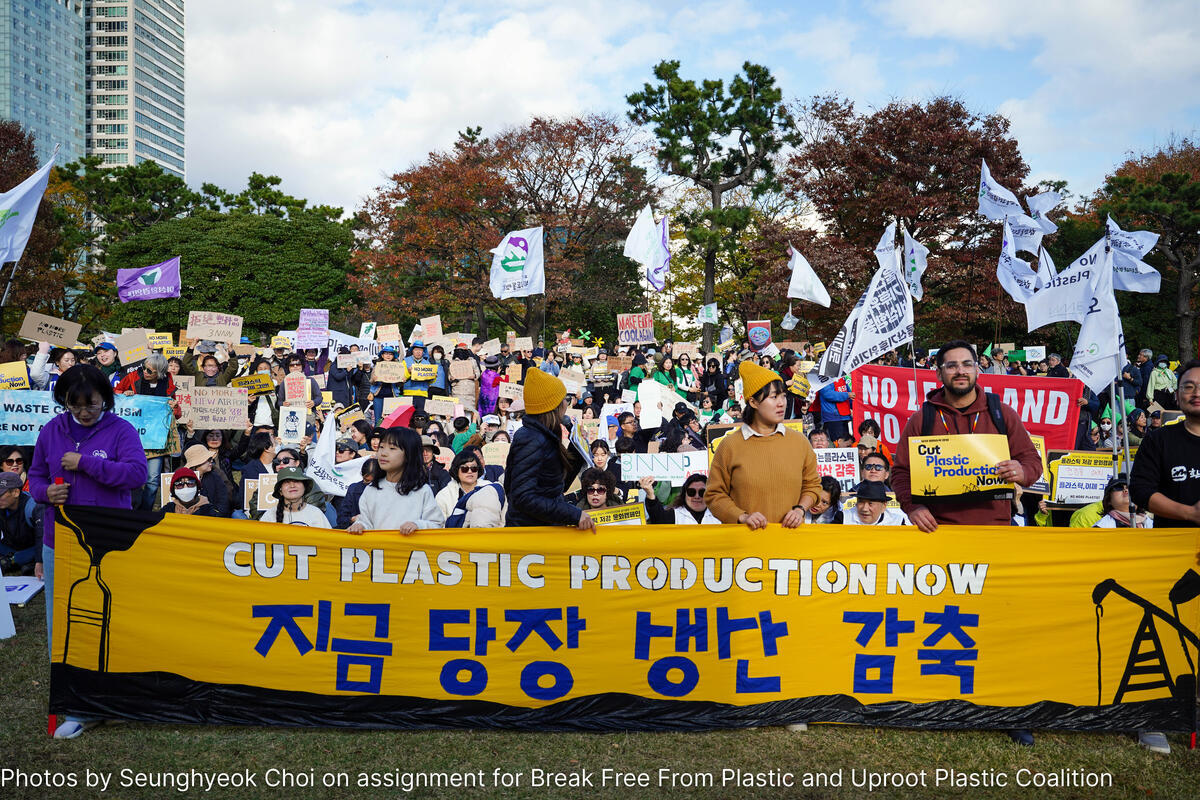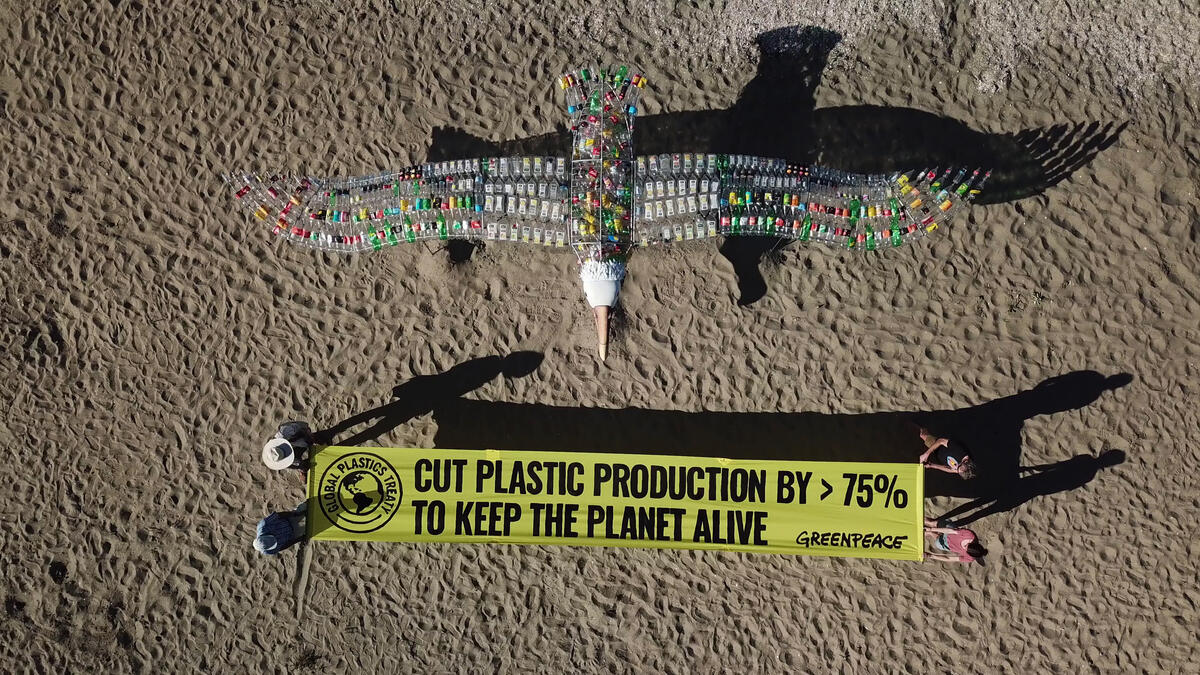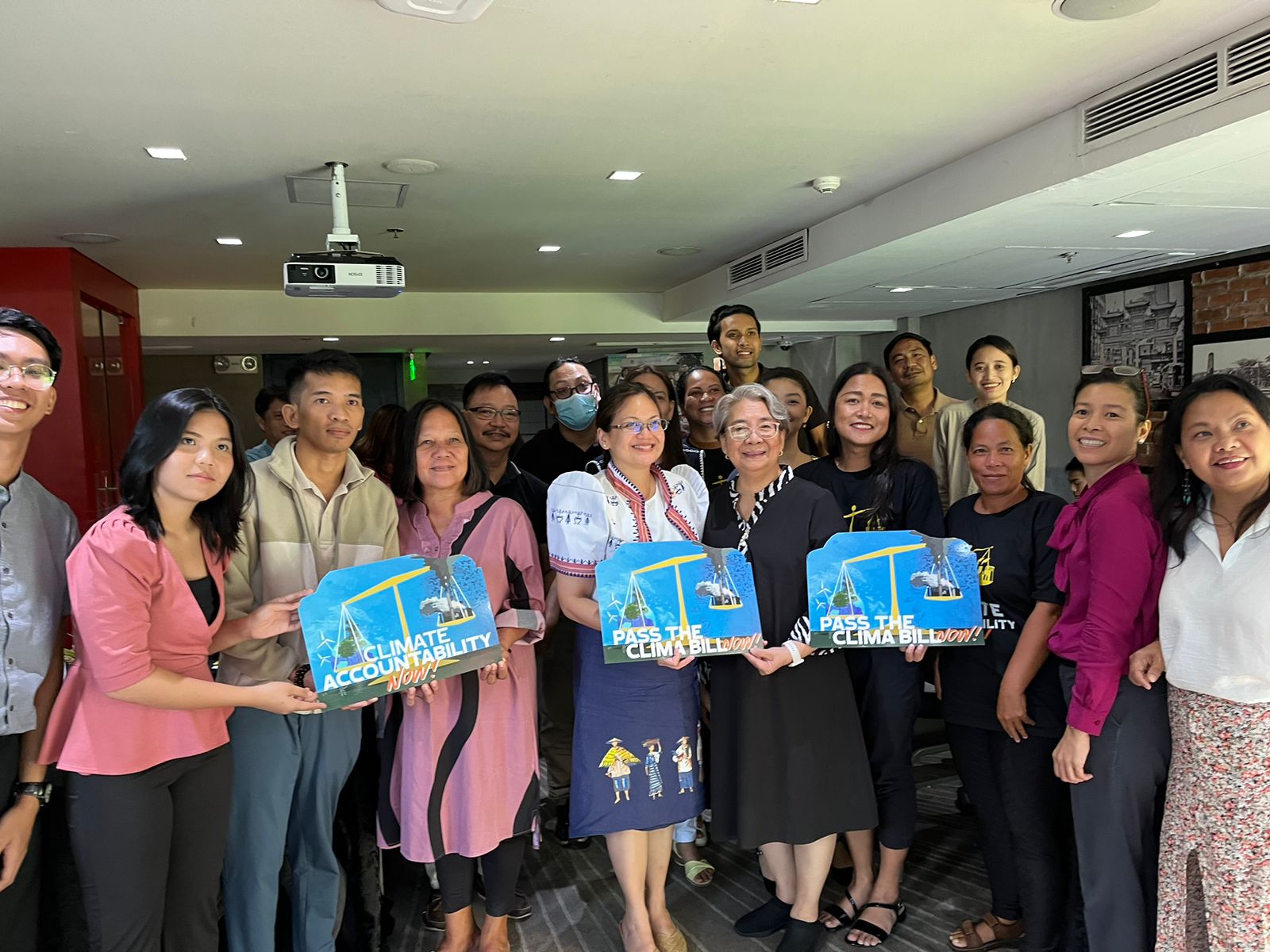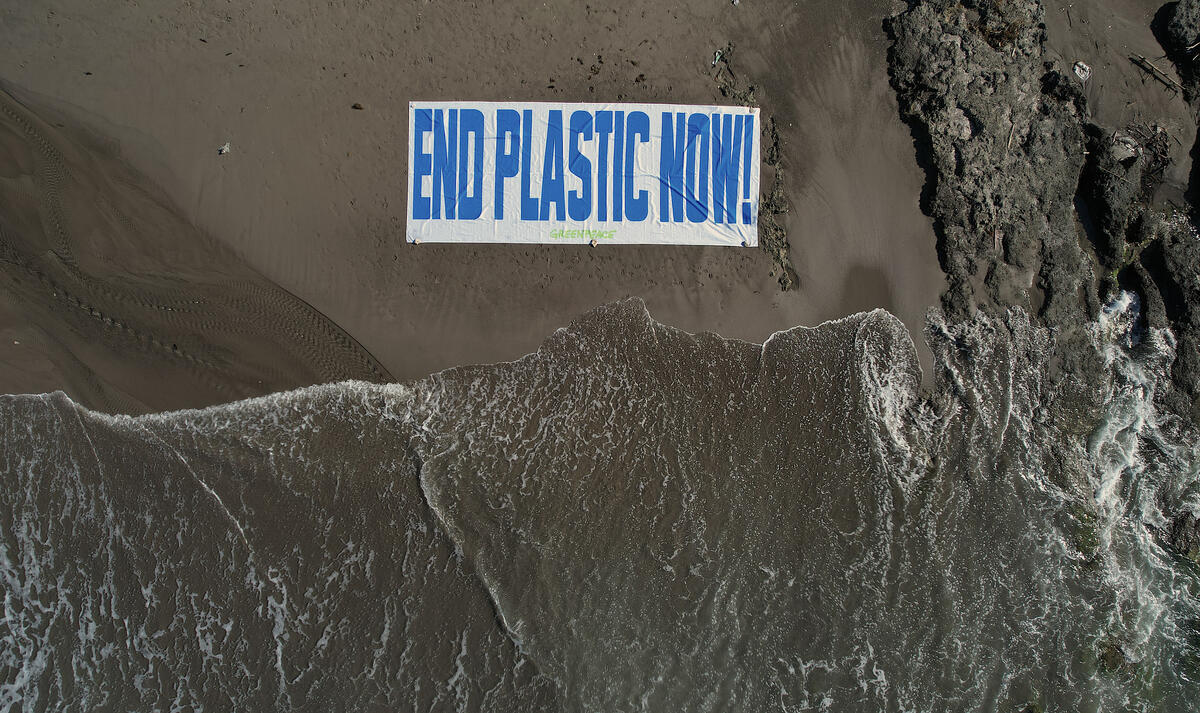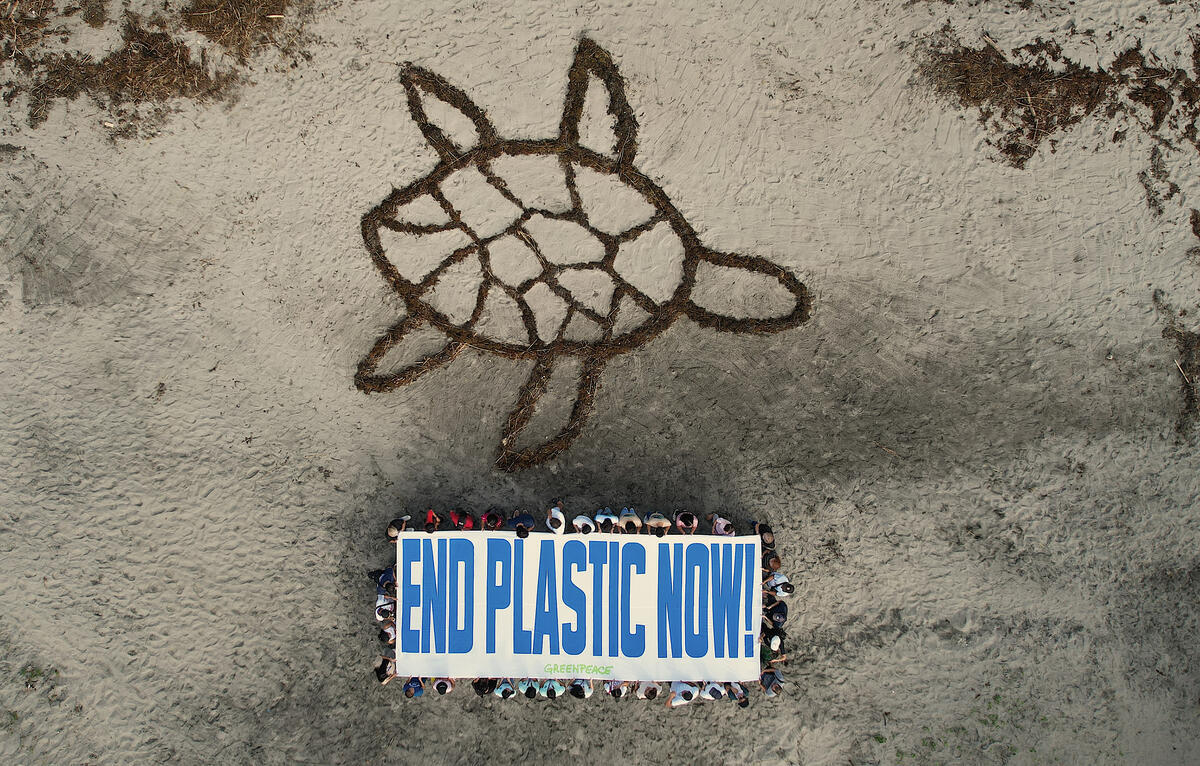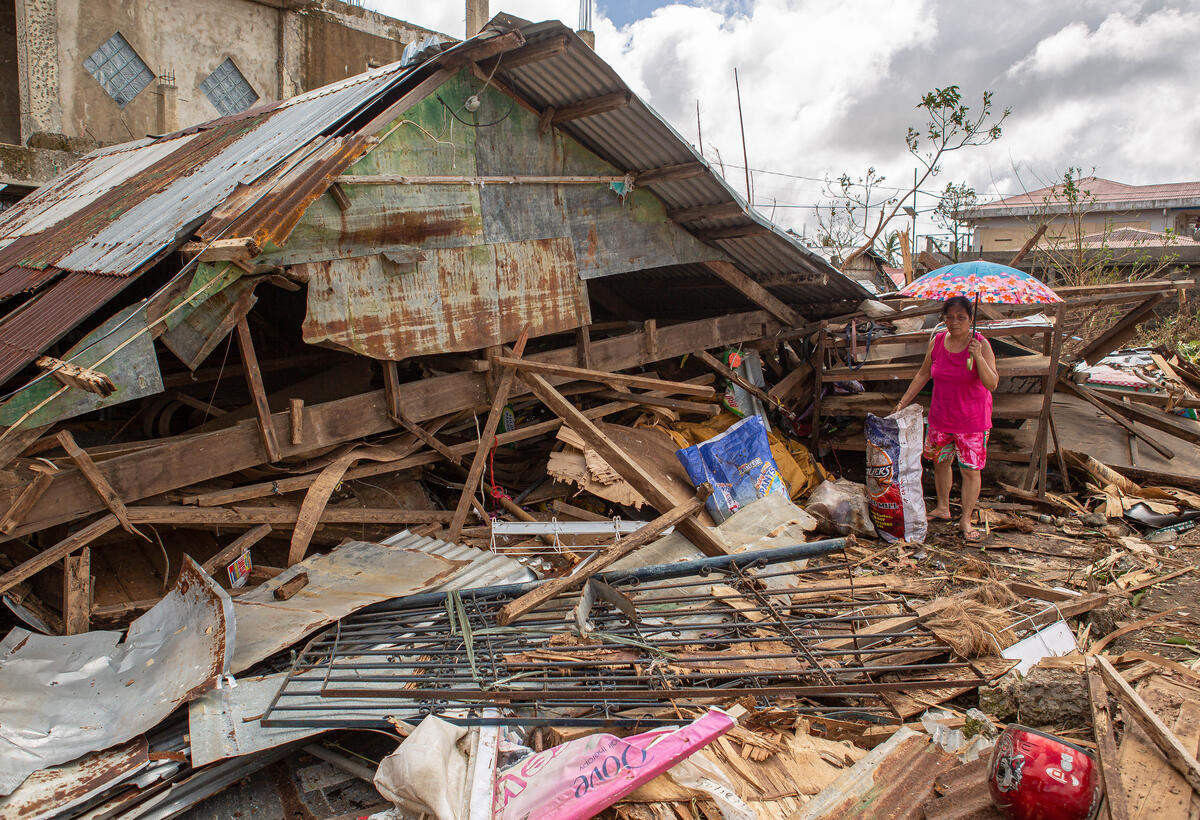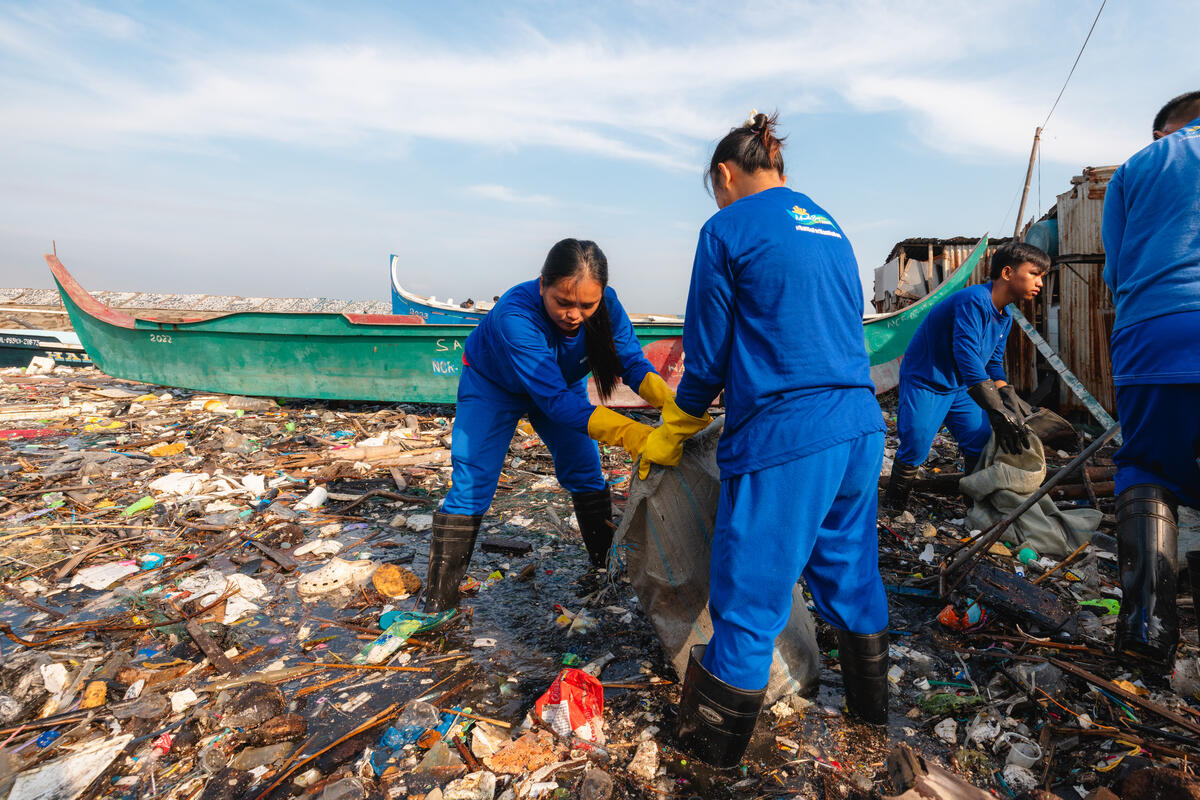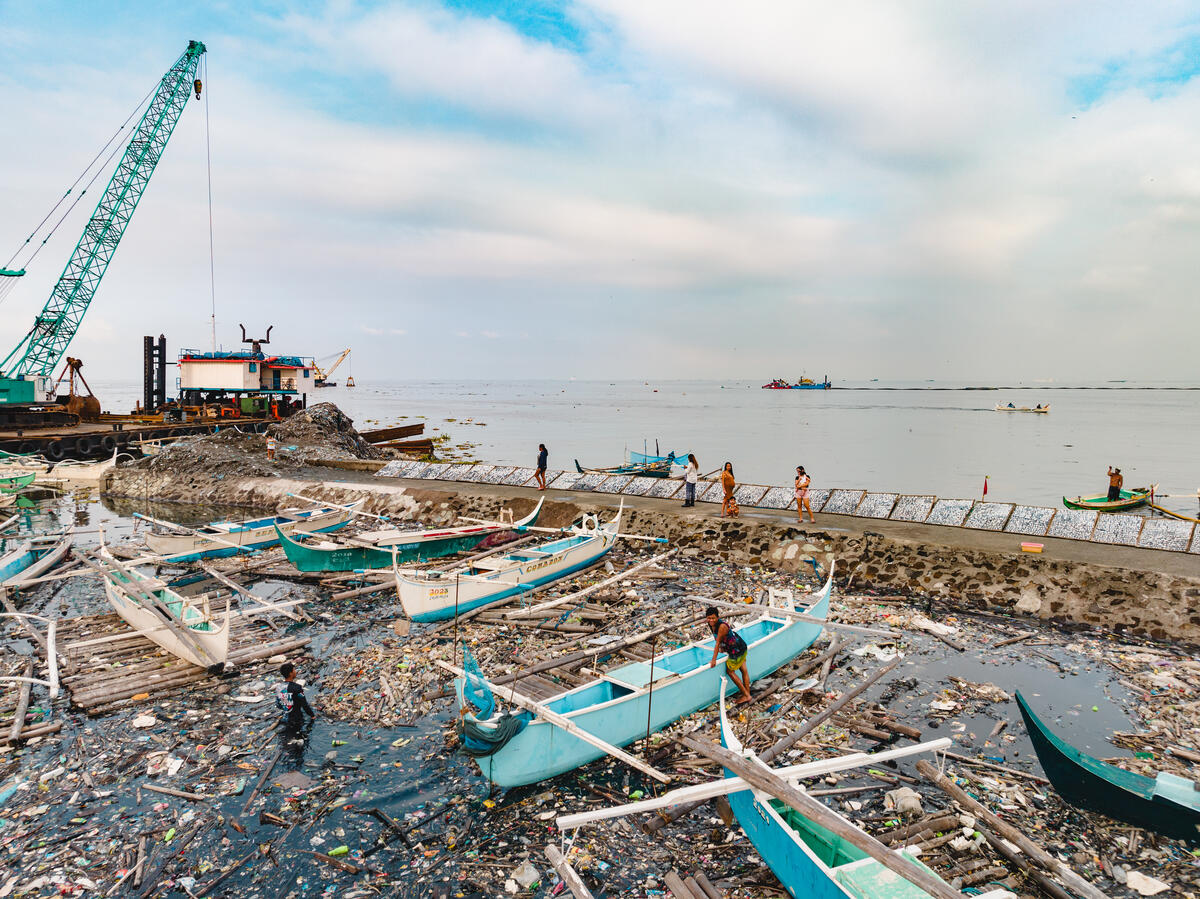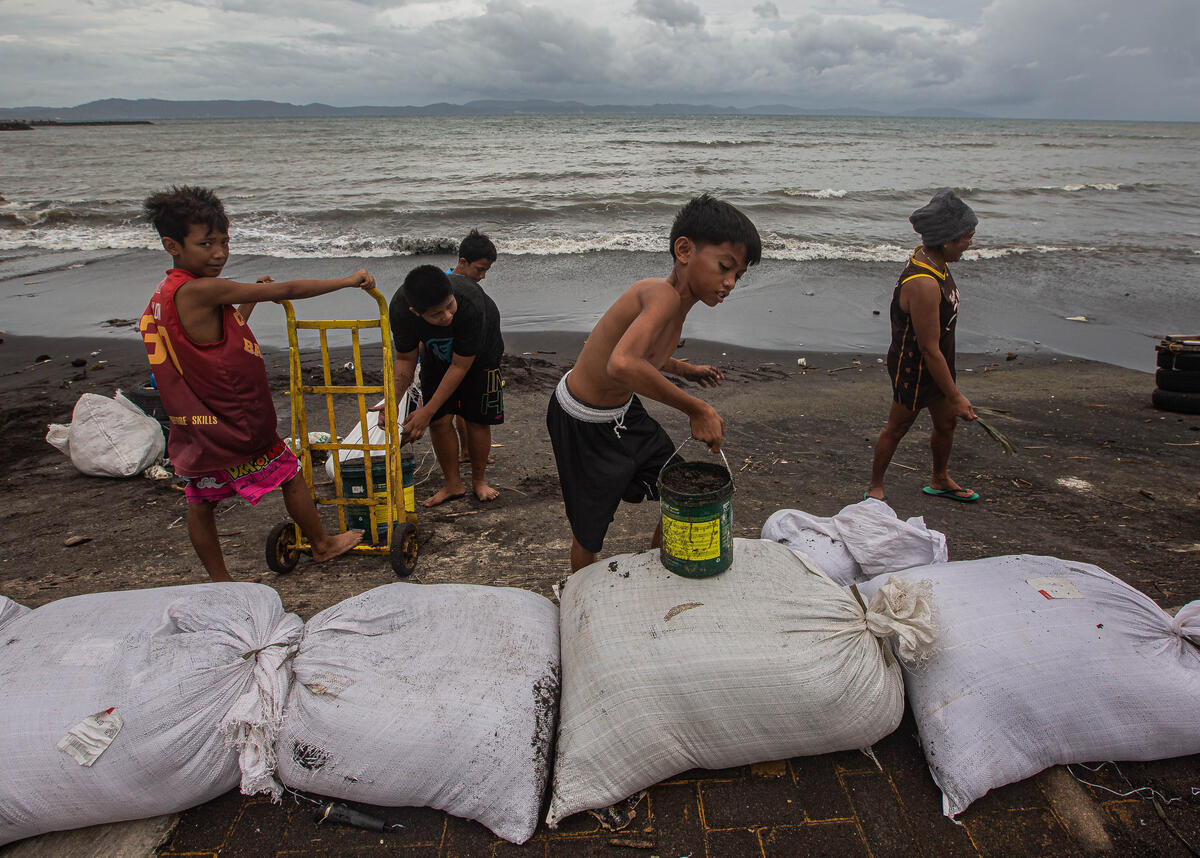-
Greenpeace Philippines statement on INC-5 Chair’s latest paper
As the Global Plastics Treaty negotiations reach its critical final moments, Southeast Asian nations, including the Philippines, must lead the call to tackle the root of the crisis—plastic production.
-
Plastic: A Threat to Human and Planetary Health
Plastic pollution poses a grave threat to both the health of the people and the environment. It affects everyday life, with harmful chemicals leaching from plastic products, especially single-use plastics.
-
Greenpeace Philippines statement on the Chair’s non-paper at INC-5
The choices made in the next 48 hours will determine whether we take decisive action against the plastic crisis or settle for a treaty that fails to address the root causes.
-
National law to penalize and litigate carbon majors pushed
Quezon City, Philippines — Lawmakers, activists and Filipino communities are pushing for a law that will mandate carbon majors to pay communities for losses and damages brought on by climate…
-
Greenpeace Philippines statement on fossil fuel and chemical industry lobbyists at INC-5
The analysis reveals a desperate industry willing to sacrifice our planet and poison communities, especially vulnerable communities in the Global South, to protect its profits.
-
Green groups, advocates deliver bold message to governments: End plastic now
As world leaders gather in Busan, South Korea this week for the fifth and most critical session of the Global Plastics Treaty negotiations, Greenpeace Philippines, together with its community partners in La Union, unfurled a giant banner along the shores of Urbiztondo, sending a bold message to END PLASTIC NOW.
-
Greenpeace Philippines statement on COP29: ‘A betrayal of climate justice’
The UN Climate Change Conference in Baku, Azerbaijan concluded with a weak agreement on a new climate finance goal
-
Towards a just, plastic-free future
Plastic pollution is one of the most pressing issues of our time, threatening ecosystems, harming human health, and disrupting the livelihoods of millions. Among those on the frontlines are waste workers and waste pickers, who bear the brunt of the crisis.
-
Fisherfolk on the Frontlines
For fisherfolk, the ocean is more than a source of food—it is their way of life. This World Fisheries Day, we are reminded that this way of life is under…
-
Greenpeace Philippines statement on Super Typhoon Pepito (int’l name: Man-Yi)
As Super Typhoon Pepito (Man-yi) wreaks havoc on communities still reeling from overlapping typhoons since October, Greenpeace urgently calls on the Philippine government to act decisively against the root causes of these escalating disasters and prioritize mechanisms to hold climate polluters accountable.

